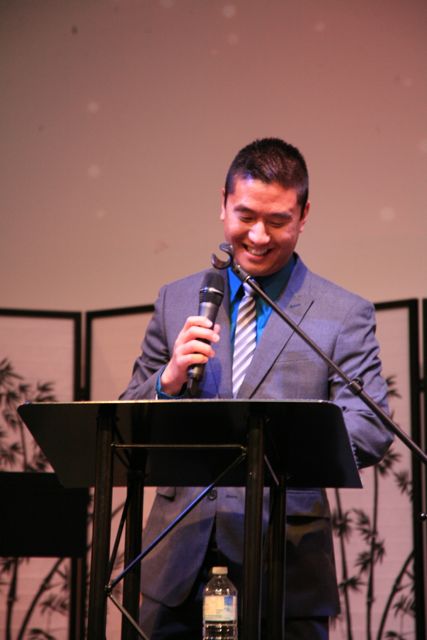Growing up in a Korean Presbyterian church, I was always starkly aware of the difference between an ordained pastor and a non-ordained pastor. In Korean, it’s the difference between being a Moksanim and a Jundosanim. The difference is so stark that you are almost, in a sense, involved in child’s play until you become an ordained pastor.
It wasn’t until I responded to this call to ministry that I began questioning the whole matter of ordination. Why did it bother me so much that Koreans were calling me a non-ordained pastor? Why did they treat me very differently from the ordained pastors? Why would their mood and attitude towards me shift once they discovered that I wasn’t ordained?
Yes, I understand that in Acts 13 the church set apart Paul and Barnabas for the work of ministry, and then prayed for them and sent them off. And I also understand the whole concept of the priesthood in the Old Testament and their required role for the Israelites.
But what about the call in Ephesians 4 to the whole church? That “grace was given to each one of us according to the measure of Christ’s gift?” That God has given EACH OF US a calling and a measure of grace to do the work that God has set out for us?
I guess what bothered me about this ordained and non-ordained distinction was that it felt like the plain wasn’t level.
Prior to coming to Beulah Alliance Church, I was pastoring in Korea. I remember this one conversation that I was having with one of the youth. He wanted to talk to me about my call to ministry and how I knew that I was called into ministry. After explaining my story, I asked him why he felt like God was calling him to be a pastor. He quickly responded, “Pastor? Oh no, I don’t want to be a pastor. I want to be a missionary. Being a missionary is much more difficult than being a pastor and I wouldn’t want to take the easy way out.”
His response bothered me almost as much as this ordained and non-ordained distinction because the plain was again not level.
If there are these role or hierarchical distinctions between ordained and non-ordained pastors as well as pastors and missionaries, then what kind of hope do we have to fulfill the Great Commission that God has laid out for us? When Jesus said in Matt 9:37-38 that the harvest was plentiful and that the labourers were few, and that we are called to pray to the Lord of the harvest to send our labourers, do you think he was just talking about ordained pastors?
The fact is, we all have a role to play in this Great Commission to go and make disciples of all nations. We all have different roles to build up the body of Christ, but the important thing is that we all recognize that we have a role, and then respond by living out that role.
After all, that’s why Jesus says to all of us in John 20:21-22, “Peace be with you. As the Father has sent me, even so I am sending you.” And when he said this, he breathed on them and said to them, “Receive the Holy Spirit.”
That’s us! All of us. Jesus said that to everyone regardless of their occupation. He is saying that he has called each and everyone of us and that he will empower us to live out our roles through his Holy Spirit.
What would it look like if all of us understood this? If the whole church understood that the plain is level at the foot of the cross? That God has called all of us to participate in this Great Commission? That we are all called to be full time missionaries? But that God is going to just route our paycheques in a different way? Imagine the impact? Imagine the momentum? Imagine the transformation that Edmonton and our country would go through if this was the case?
This is why I’m getting ordained. It’s not because I am some sort of pastor who is going to do the holy work that reverends do…but it’s because I want to commit my life to helping others understand that we are all called to this work of ministry. That we are all sent out by God, that we are all on this Great Commission, and that we are all harvest workers because that was God’s intention from the beginning.

amen brother, amen!